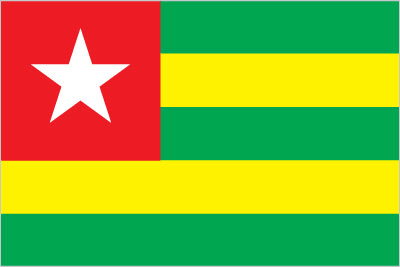Togo completed its TNA in 2018. The Technology Action Plan proposed a project to disseminate prioritized technologies and support Togo’s National Rural Electrification Program.
The agriculture sector occupies a significant place in the Togolese economy and represents 38% of GDP, provides more than 20% of export earnings and employs two thirds of the labour force. The sector is characterized by a majority of small farms and subsistence farming. Despite its short shorelines, sea-level rise rise presents a number of challenges, together with the increasing number and severity of droughts and the decrease in rainfall, which exacerbate the already tough conditions in the country’s agriculture sector.
Two of the technologies highlighted in the TNA are agricultural land management and integrated agriculture production systems, both aimed at building climate resilience in the agriculture sector. In support of national policies on land management, which aim to irrigate 5,000 ha per year over fifteen years, the technology action plan suggests deploying this technology in the valleys of the Mono and Zio rivers from 2018-2023.
Togo’s Technology Action Plan outlined a proposal to introduce this technology in the northwestern plains of the Savannah region and in the plains of Mandouri and Oti. The objective of the project is to increase the area of managed land through building capacity in different farming techniques. State technical agents will be trained and deployed to farmers who will be trained and informed about the importance and purpose of relevant farming techniques.
The TNA process also produced a proposal to implement small hydroelectric power plants and photovoltaic solar stations in five administrative regions of Togo. The goal is to install four small hydroelectric power plants and six photovoltaic solar stations across the five regions. It is estimated that this will reduce GHG emissions by 300,000 to 800,000 tCO2.
Togo’s TNA contributes to the following Sustainable Development Goals:







